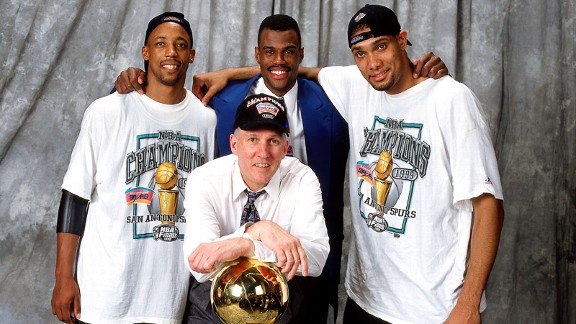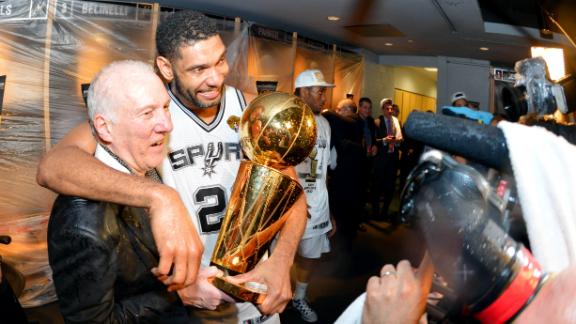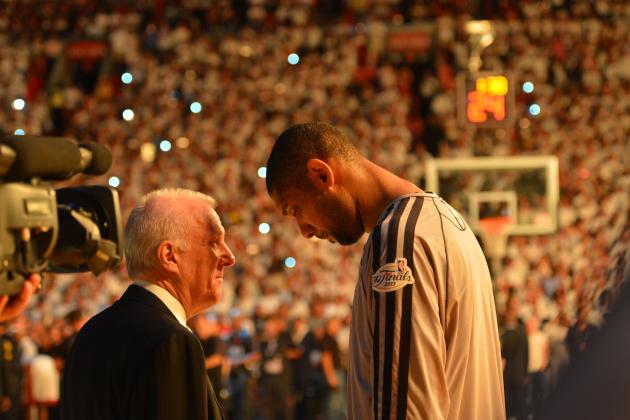
As I approach 30, I realize that 15 years is no small unit of measure. It shouldn’t be overlooked. 15 years is the difference between a child emerging from the womb, into the arms of his or her loving parents, and that child as a fully-throated teenager, bellowing how much they hate everything, everyone and everywhere, and slamming the door behind them for good measure. 15 years is the difference between slogging away at Algebra II homework as a high school freshman and getting the material necessary to defend your doctorate as a graduate student. 15 years separates young-thirties from mid-forties, mid-forties from early-sixties, early-sixties from mid-seventies, and mid-seventies from the realities of death. 15 is just long enough to look at someone, and not recognize the person looking back, even if that person is you.
There is no reason to take 15 years lightly, and very few people do. It’s very rare to be able to do something for 15 straight years. Most romantic relationships don’t last 15 years. Most people don’t work in the same job for 15 years. Fewer people live in the same house, or same city for a 15 years. Most ideal body images fail to last 15 years straight. Things that we still do 15 years after we started doing them seemingly lose their temporary nature, and become part of us. They inform who we are, dictate what we do. Pastimes from childhood that carry into adulthood usually become part of the basic fabric of a person, and are acknowledged as things that are part of a package deal. 15-year hobbies — accomplished athletes, artists, naturalists, linguists, and so on — begin to wear that “lifelong” label, even if they don’t deserve that type of pomp and circumstance. The things that manage to retain their most essential qualities, and are so engrossing to the particular person that time can pass in perpetuity and they can still find meaning in it, are items that shine brighter than diamonds, sparkle more fully that jewels. So of course, it shouldn’t be taken lightly that we watched a version of the San Antonio Spurs that is still deeply familiar to us, where the basic, most important features — the owner, the general manager, the coach and the most important player on the floor — are all exactly the same, and seemingly willing to remain that way, as long as they deign to move forward together.

After the victory in Game 5, most of the punditry was focused was on how exceptional this entire run was. In his final round-up of the NBA season with the ESPN studio gang (and may that studio gang be swiftly broken up and never re-assembled again), Bill Simmons commented that he felt he’d never see a coach and a player win championships 15 years apart. “It’ll never happen again,” Simmons chirped with his textbook internet-authoritarianism, talking over Sage Steele and leaning forward know-it-all-ingly in his seat. “You’ll never see a coach like Pop and a player like Timmy win 15 years apart. I guarantee that.” Even as the game played itself out in the fourth quarter, as an army of Spurs role players (who collectively beat his former team outright earlier this season) ran up the score on the defeated Miami Heat, Mark Jackson explained that people don’t copy the Spurs because it simply cannot be done “Folks wonder why people don’t just do what they do,” Jackson said late in the fourth quarter, his voice filled with both defensiveness and awe, as he watched a team that he’d faced both as a player, and a coach, come up on the winning end again. “The reason? You can’t. You can’t just copy it.” And indeed, that theme was on display, for anyone who had an opportunity to follow this particular Spurs team to their final destination: champions, once again. There was little about this Spurs team that seemed able to be replicated, very few aspects that could be lifted and re-planted elsewhere, and not have the verdant leaves turn to a morose brown, and whose branches would wither and falter.
For all of the stern lectures about appreciating this team, and not classifying them as “old”, “boring” or “slow”, a larger point was missed. It’s not that the Spurs are old, but rather, that we are old, still watching the same player, same coach, and same team, dismantle all of the new challengers that enter the ring, even after all these years. It isn’t that the Spurs are boring and slow — Popovich’s insistence on never letting the ball “stick” prevented that from ever occurring — but rather that we are boring and slow, with our butts on couches, watching the same teams battle-it-out again. Even if the Spurs haven’t won the championship each year for the last 15 years, it feels like they have. The same feelings are extended to teams like the Los Angeles Lakers and Miami Heat; the teams that have dominated the first part of the 21st century, and who seem poised to remain near the top of the heap for the next 15 years, after this. All of this feels too familiar, a sort of empty sinking feeling when something happens again, and yet you were a part of it, a participant in the act. It is not the teams that are declining, but us as living, breathing humans; losing a bit of ourselves each day. Our ball movement is growing slower and more sticky. Our defensive rotations are slower. Our own doubts about our immortality are creeping in.

God willing, in 15 years, I will be 44 years old. It will be 2029, a date once reserved for sci-fi books and televised future-scapes. All of my siblings will be middle-aged, likely with spouses and families of their own. My parents will be known chiefly as grandparents, and will both be approaching their 80′s, and we will be with them, helping them navigate through a decade that will likely be filled with elation and despair. None of us will be the same people we were. There will be bigger issues to tackle in the meantime, and bigger ones to tackle afterwards. For each of us, this is but a brief moment in time; a chance to make a mark before we depart, and someone else comes and takes our places.
And If I’m still watching the Spurs win championships after all that time, my hairline fully receded, my skin more weathered and wrinkled, and my butt still planted on the couch, I will likely feel as mixed up about it as I feel today.


1. Very well written
2. So nice to read takes that haven’t been spewed about dozens of times before.
Thoughtful and beautifully written.